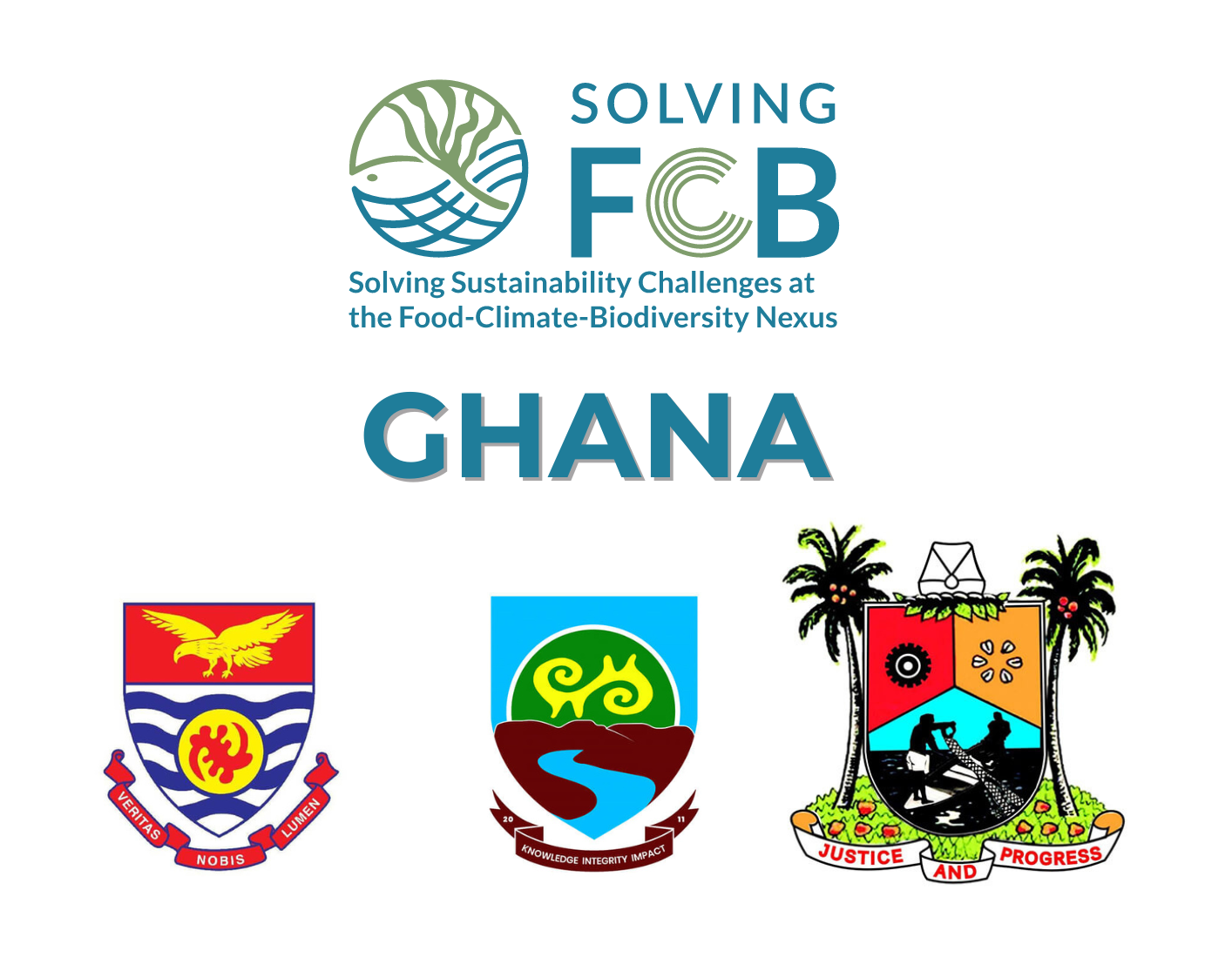Africa Centre of Excellence in Coastal Resilience |  University of Cape Coast
University of Cape Coast
Image
Posted On
Tuesday, September 24, 2024 - 14:06
Body
The Solving the Sustainability Challenges at the Food-Climate-Biodiversity Nexus (Solving-FCB) Project is a multidisciplinary initiative aimed at addressing the interconnected challenges of food security, climate change, and biodiversity loss. Funded by the Social Sciences and Humanities Research Council (SSHRC), the project is spearheaded by leading academic institutions, including the University of British Columbia in Canada, with Professor William Cheung as the Project's Principal Investigator. The project brings together a diverse group of researchers and policymakers across the world to develop sustainable solutions that ensure food systems' resilience in the face of environmental changes.
With Ghana & Nigeria, working together to represent West Africa, the Partnership will examine whether and how resolving Illegal, Unreported, and Unregulated (IUU) fishing in the Gulf of Guinea would enhance the resilience of marine ecosystem services for sustainable livelihoods under climate change. The Gulf of Guinea along the coast of West Africa is known to be a global hotspot both climate change impacts and IUU fishing, as well as illicit trade in seafood. Meanwhile, the subsistence of a major part of the coastal population crucially depends on the fish stocks and fisheries in the region. Thus, the combination of FCB-related stressors exacerbates the challenges to the livelihoods, food security and well-being of millions of people in countries of this region, including Nigeria and Ghana. This case study, focusing on Nigeria and Ghana, hypothesizes that resolving IUU fishing will have ‘triple’ benefits for addressing the nexus of FCB challenges.
The Partnership will examine the following higher-level questions:
- what are the consequences of farming and aquaculture development on biodiversity and climate?
- how do climate adaptation for fisheries and agriculture affect food production, biodiversity and societal wellbeing?
- how can biodiversity and other living resources be managed to support food security and climate adaptation?
- how can ‘top-down’ and ‘bottom-up’ approaches and the development of ‘desirable futures’ scenarios, coupled with the appropriate decision support framework, be useful to inform local actions and for taking account of local actions in global agreements, to solve FCB challenges?
Three tertiary institutions in Ghana; University of Cape Coast, Ghana Institute of Management and Public Administration and the University of Energy and Natural Resources, working together on this agenda and have commenced the project with an inception workshop where the project implementation phase was elaborated, indicating the tasks for specific institutions and mode of reporting. Solving-FCB is working with local researchers to gain a better understanding of the local ecosystems, as they explore possible policies and human actions that will help in achieving food security, climate mitigation and biodiversity conservation goals.

Last modified
